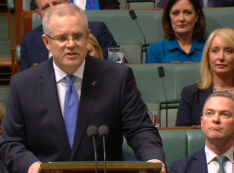Budget 2016: measures that impact the media and marketing industries
The 2016 budget has been handed down by Treasurer Scott Morrison with several initiatives impacting on the media and marketing industries, as the government prepares to dissolve parliament and call an election. Here’s a rundown of what you need to know.
In his first budget Treasurer Scott Morrison described the budget as an “economic plan” pointing to the economy transitioning from the mining boom to a services economy.
He described it as a “growth friendly 10 year enterprise tax plan” which gave tax cuts to small businesses, likely to benefit many smaller agencies and tech firms.


